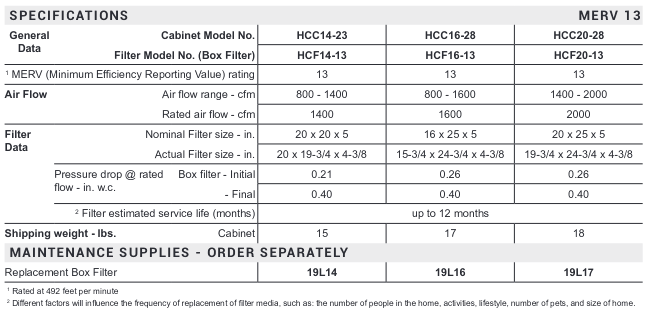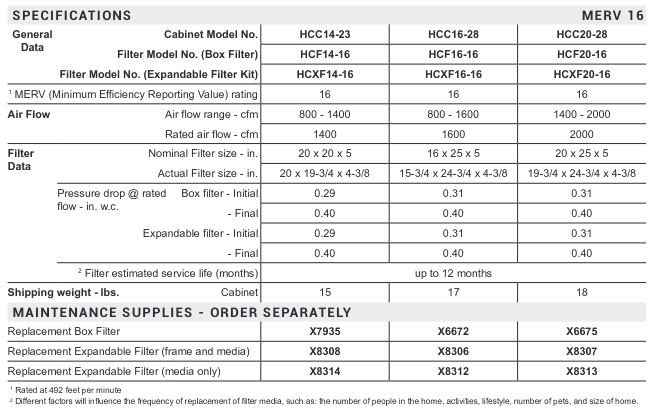Someone from an HVAC duct cleaning company told me today that MERV-16 charcoal filters are harder on the furnace and that the charcoal is a gimmick that just costs more. He said he went to a class and everything, making it sound like MERV-16 was a bad idea. He said that air flow will suffer and threfore heating/cooling efficiency will to.
Ultimately he recommended MERV-13 because it will put less pressure on the blower motor.
Since my sensitive nose does notice the difference, I did some digging on the Lennox filters we have been using and found this pdf where, on page 5, Lennox provides the specs for a MERV-13 and the actual MERV-16 model we have been using (Lennox X6672).
Our filter is the 16x25x5" model, which is the center column on the two spec sheet images below. Note that the CFM rating for both MERV-13 and MERV-16 are the same. There is a small difference in "Initial" pressure drop but the final pressure drop for both is 0.40 in. w.c. as you can see below.
According to our furnace's installation document, "This furnace is not certified for operation [...] with an external static pressure which exceeds 0.8 inches w.c." and both filters shown below max out at 0.40 in. w.c. and page 42 of the furnace install document (page 48 of the PDF) indicates that CFM maxes out at about 1365 @ 0.50 in. w.c. (I think, don't actually know our blower size). So if I understand correctly the filters below should work fine since they spec a CFM of 800-1600.
In case you it matters: this furnace serves 8 vents upstairs with 2 returns, and downstairs there are 2 vents with 2 returns with a total space of ~2200 sqft and 8' ceilings.
Questions:
- Given the two filters shown below, is there really a difference between the two that would affect furnace performance?
- Other considerations?
MERV 13 Specs
MERV 16 Specs


